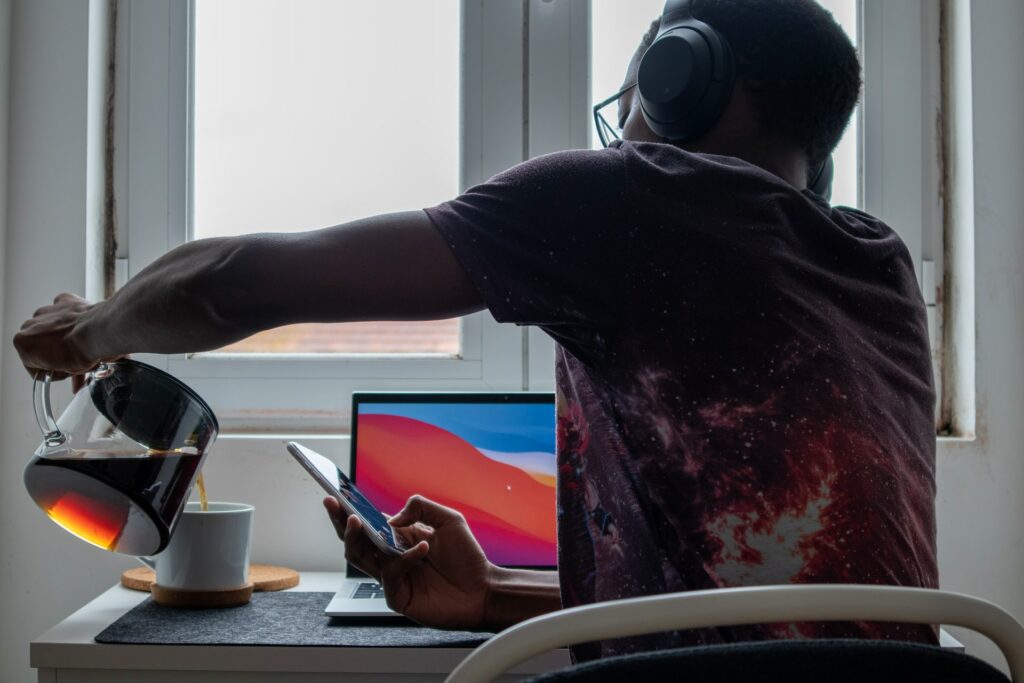Time Management Tips for Creating A Work From Home Schedule
What are the trickiest things about working from home? If you ask most WFH newbies, they’ll probably say lack of colleagues, no on-site IT support – and time management. Even if our workplaces felt laid-back, there were always timeframes and calendars in the background, with many deadlines mutually managed.
For the worker out in the wild, schedules seem like a distant memory, and this can leave us feeling a little lost. By reclaiming a routine, we can manage our working hours more effectively, and be both more productive and content.
Managing your work schedule
Lose that lost feeling by taking control of your diary, since the best way to avoid feral time management is to act as your own PA. Start by deciding which hours you will work, and stick to them. Then, dedicate a time-slot each week to plan the main tasks and appointments for the following week. One of the easiest and most effective tools you can use is something like Google Calendar that will keep track of your tasks, deadlines, and appointments.
Beware of what Forbes terms “fragmented time”. These are those gaps of about 15, 20, 30 minutes in between scheduled meetings and calls, which seem too quick to achieve anything productive. If you are self-employed, this can be easier as you largely control your own diary. However, if you’re WFH away from an employer, discuss working hours with your manager and team. Establish which hours can be used for a focused time, and when team meetings can be scheduled. This ensures that you always have dedicated time for getting the job done without those annoying dead spaces.

Time management apps
If you feel a digital assistant would help you, there are plenty of time management apps out there. Probably the most famous recent method is the Pomodoro Technique, which balances bursts of focussed energy with short breaks. The Focus Keeper app (iOS, Android, desktop) uses these principles and has a nice simple interface. If you’re struggling to order your thoughts, use a mind mapping app like Mindnode to help you feel more organized (iOS and desktop). Like a list? Download Todoist
for fab digital time-management (iOS, Android, desktop).
Recent research into remote working by the BBC found that over a million UK workers will not be returning to the office full-time. We think this will lead to a whole new batch of time management apps and software, and we’re looking forward to trying them out…

Setting some boundaries
Time management also depends on firm boundary setting. This is about establishing working hours, working spaces, and balancing roles. If you’re sharing your home workspace with housemates, a partner, and/or kids, you need to set boundaries. Allotted working hours let everyone know when you’re on and off-duty, and related to this, having dedicated hours also help define your role. While you don’t just stop being mum or dad, having a work/family rota with your WFH partner allows one of you to focus on work while the other takes care of the kids.
If it’s just you, creating a dedicated workspace and set working hours helps you be more productive. A decent workspace doesn’t take much effort or expense to set up (take a look at our blog for workstation tips), and a permanent space is ready to go whenever you are. Deadlines don’t go away just because your location has changed, so setting a work schedule helps you stay on top of the workload. Also, having set working hours makes sure that your work-life balance doesn’t end up a little too blurry.
We’re not advocating stopwatches and spreadsheets (although frankly, that does sound appealing to some of us). However, establishing a work schedule will help you get the job done, and leave plenty of time for play. Read our article on work-life balance to find out more about effective WFH juggling.